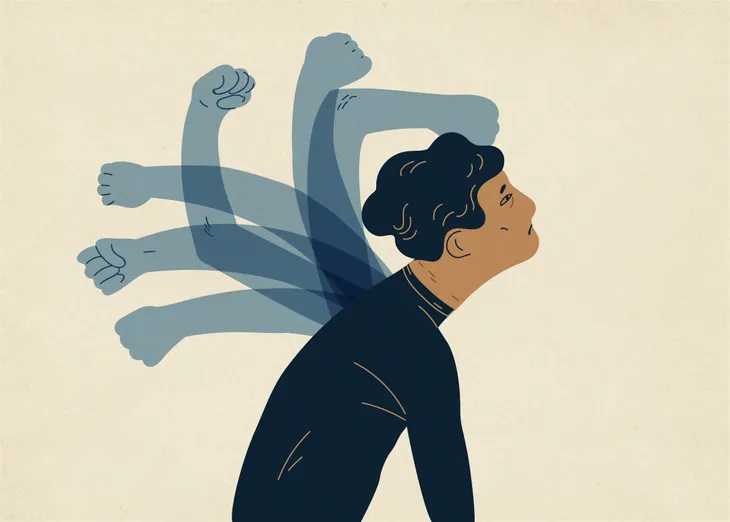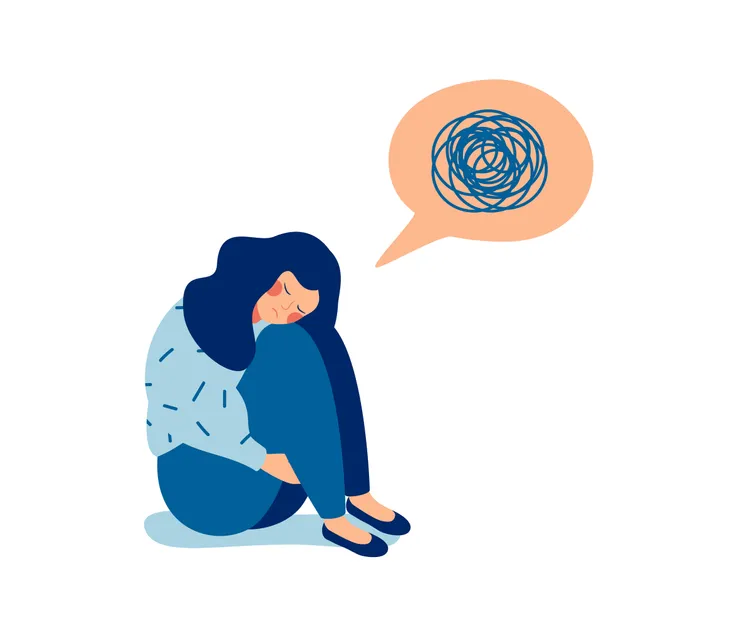Once seen as a mental illness all its own, melancholic depression is now considered a subtype of major depressive disorder (MDD), according to Healthline. Melancholic depression can severely impact a person’s personal and work life, it adds.
There are symptoms that melancholic depression can have in common with MDD, as well as some that give it a specific classification. The source notes that since the American Psychiatric Association (APA) doesn’t officially recognize melancholic depression on its own anymore, your doctor may diagnose you with “major depressive disorder with melancholic features”. Here are six of the telltale signs…
Loss of Joy
One of the biggest telltale signs of melancholic depression is losing the ability to feel pleasure – meaning even really good news doesn’t make you smile. You still tend to feel nothing, despite having an abundance of positive around you. In fact, “loss of pleasure in all or most daily activities” is a major marker, according to Healthline.
The events that you used to look forward to, for example the annual county fair or a friend’s birthday bash, are no longer appealing to you. Basically, you don’t really look forward to your day, and even when it’s a good day, it doesn’t shake the feelings of melancholy.
Difficult Mornings
Psychology Today explains that those with the subtype of melancholic depression often feel the worst in the morning – which could make it more difficult to get up and face the day.
This type of depression can also disrupt sleep, which in itself can cause a variety of health problems from increased risk of heart disease to reduced ability to handle stress. In some cases, the patient may oversleep.
Intense Feelings of Guilt
Associated with melancholic depression is “excessive guilt,” explains EmbracingDepression.org. “Although these feelings of guilt are normally in response to an occurrence or situation, the intensity of guilt expressed does not correspond to the event that occurred,” it adds.
That means you may dwell on things that happened a long time ago that were already resolved or are minor, and it may stop you from doing certain things you enjoy for fear it may offend someone. It can also suppress your creative spirit, notes some sources.
Unfounded Sadness
With melancholic depression, you don’t just lose your ability to feel highs, but you are also constantly hitting lows and feeling sad for no real reason. “You’re not simply sad or down due to a life event such as the death of a loved one,” explains VeryWell Health.
Chronic sadness is one of the definitions of melancholy. Those observing from the outside may say a black cloud seems to be following you around, as you likely won’t smile very often and come across as gloomy.
Lack of Energy
Sufferers of this type of depression often have a lack of energy and also can have trouble concentrating, according to TheConversation.com. However, the energy and mood levels tend to have “diurnal variation,” meaning they can improve as the day goes on, it adds.
The source also notes melancholia (melancholic depression) has a relatively distinct pattern of symptoms including this one, and it posted an article http://theconversation.com/back-to-black-why-melancholia-must-be-understood-as-distinct-from-depression-38025 addressing concerns that declassifying it as its own disease will mean less research will be funded to address the problem specifically.
Negative Physical Effects
Aside from the psychiatric symptoms, someone with this type of depression can also experience “significant weight loss,” notes Healthline.com. This can be accompanied by eating too little, and in some cases, eating too much.
Other physical markers of melancholic depression can be developing habits that didn’t exist before, “for example, jiggling your leg,” explains the source. This condition can be addressed with newer SSRI antidepressant medications, it adds. Talk therapy can also be effective in conjunction with the drugs, it adds.









